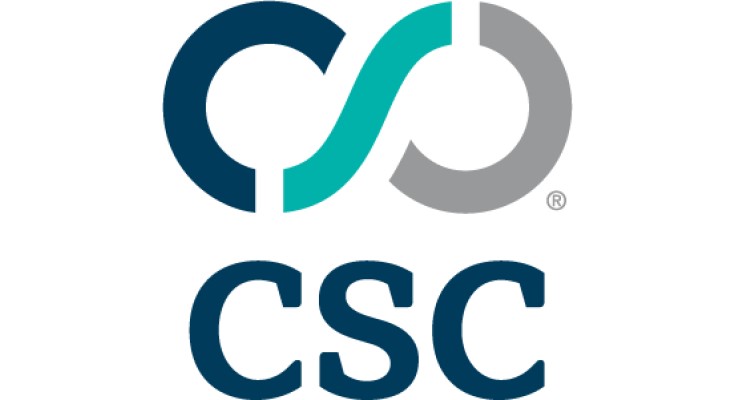
News
October 19, 2025
CSC Report Warns of Mounting Risks as SSL Certificate Life Cycles Shorten
WILMINGTON, DE — CSC has released its first SSL Landscape report, revealing that nearly 60% of organizations rely on three or more secure sockets layer (SSL) providers — a sign ...
**CSC Report Warns of Mounting Risks as SSL Certificate Life Cycles Shorten**
WILMINGTON, DE — A new report from CSC, a leading provider of business, legal, and financial services, paints a concerning picture of the current state of Secure Sockets Layer (SSL) certificate management. The inaugural SSL Landscape report reveals a complex and potentially risky environment for organizations navigating the digital landscape, particularly as SSL certificate lifecycles continue to shrink.
The core finding highlights a widespread reliance on multiple SSL providers. According to the report, nearly 60% of organizations utilize the services of three or more SSL providers. While seemingly offering flexibility, this multi-provider approach can introduce significant challenges in tracking, managing, and renewing certificates, ultimately increasing the risk of costly outages and security vulnerabilities.
SSL certificates are essential for securing online communications, encrypting data transmitted between a user's browser and a website's server. These certificates have a limited lifespan, requiring regular renewal to maintain security protocols. The trend towards shorter lifecycles, driven by security best practices and browser requirements, demands even more diligent management.
The CSC report suggests that the complexity of managing multiple SSL providers, coupled with shorter certificate lifecycles, creates a perfect storm for potential errors. Organizations that fail to adequately track certificate expirations risk experiencing website downtime, loss of customer trust, and even security breaches. Expired certificates trigger security warnings in browsers, deterring visitors and damaging brand reputation.
Furthermore, the report emphasizes the importance of proactive certificate management strategies. Relying on manual tracking methods or neglecting to centralize certificate management processes significantly increases the likelihood of overlooking renewal deadlines. This can lead to unexpected outages, requiring urgent and potentially costly remediation efforts.
CSC's findings underscore the need for organizations to prioritize robust SSL certificate management practices. This includes implementing centralized management systems, establishing clear ownership and accountability for certificate renewals, and leveraging automation tools to streamline the entire certificate lifecycle. By adopting these measures, businesses can mitigate the risks associated with shorter SSL certificate lifecycles and ensure the continued security and availability of their online services. The report serves as a crucial wake-up call for organizations to re-evaluate their SSL strategies and adopt a more proactive and comprehensive approach to certificate management.
WILMINGTON, DE — A new report from CSC, a leading provider of business, legal, and financial services, paints a concerning picture of the current state of Secure Sockets Layer (SSL) certificate management. The inaugural SSL Landscape report reveals a complex and potentially risky environment for organizations navigating the digital landscape, particularly as SSL certificate lifecycles continue to shrink.
The core finding highlights a widespread reliance on multiple SSL providers. According to the report, nearly 60% of organizations utilize the services of three or more SSL providers. While seemingly offering flexibility, this multi-provider approach can introduce significant challenges in tracking, managing, and renewing certificates, ultimately increasing the risk of costly outages and security vulnerabilities.
SSL certificates are essential for securing online communications, encrypting data transmitted between a user's browser and a website's server. These certificates have a limited lifespan, requiring regular renewal to maintain security protocols. The trend towards shorter lifecycles, driven by security best practices and browser requirements, demands even more diligent management.
The CSC report suggests that the complexity of managing multiple SSL providers, coupled with shorter certificate lifecycles, creates a perfect storm for potential errors. Organizations that fail to adequately track certificate expirations risk experiencing website downtime, loss of customer trust, and even security breaches. Expired certificates trigger security warnings in browsers, deterring visitors and damaging brand reputation.
Furthermore, the report emphasizes the importance of proactive certificate management strategies. Relying on manual tracking methods or neglecting to centralize certificate management processes significantly increases the likelihood of overlooking renewal deadlines. This can lead to unexpected outages, requiring urgent and potentially costly remediation efforts.
CSC's findings underscore the need for organizations to prioritize robust SSL certificate management practices. This includes implementing centralized management systems, establishing clear ownership and accountability for certificate renewals, and leveraging automation tools to streamline the entire certificate lifecycle. By adopting these measures, businesses can mitigate the risks associated with shorter SSL certificate lifecycles and ensure the continued security and availability of their online services. The report serves as a crucial wake-up call for organizations to re-evaluate their SSL strategies and adopt a more proactive and comprehensive approach to certificate management.
Category:
World